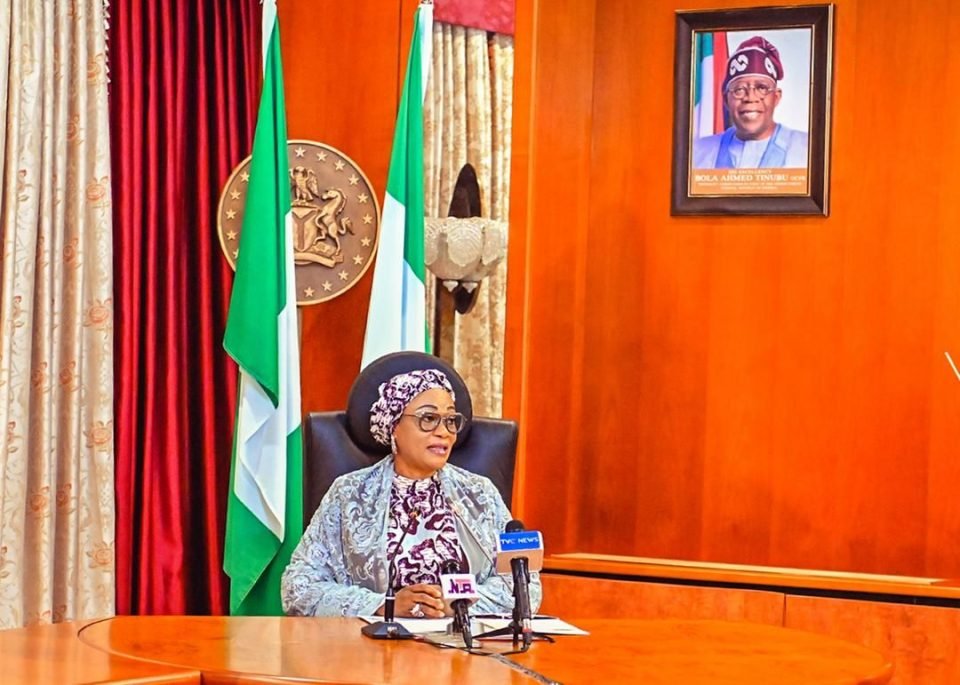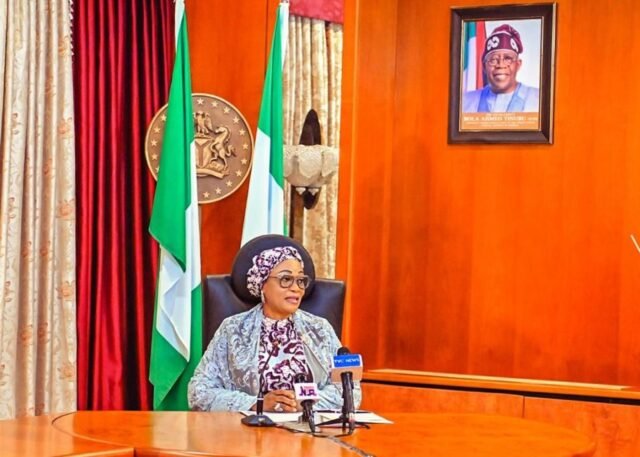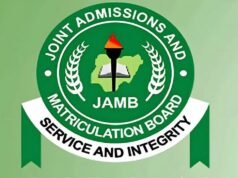In a spirited address at the closing ceremony of the 2025 Renewed Hope Initiative / National Information Technology Development Agency (NITDA) Women ICT Training Empowerment Programme, Nigeria’s First Lady, Senator Oluremi Tinubu, urged women across the country to embrace digital learning — starting modestly, but courageously. Her message, rooted in both her personal journey and a powerful vision for national transformation, sought to inspire confidence and persistence among the newly trained digital ambassadors.
Table of Contents

Embracing Small Beginnings
Senator Tinubu didn’t mince words as she encouraged participants to begin their digital journey with humility and a readiness to grow. “Don’t be afraid to start small,” she said, emphasising that excellence at any scale can draw attention and catalyse change. Her own story underlined this point: she reflected on her days as Lagos State’s First Lady, when she established an Alternative High School for Girls. That project, once speculative and uncertain, has now inspired over 40 similar schools nationwide — a living testament to what patience, care, and grit can build.
That anecdote resonates deeply, especially in a country where ambitious dreams sometimes falter under fear and self-doubt. By sharing a personal history of risk-taking and slow-but-steady progress, the First Lady made her call to digital empowerment feel both accessible and deeply authentic.
Digital Literacy as a Catalyst for Change
For Mrs. Tinubu, the aim of this empowerment programme isn’t merely individual upliftment. It is transformative: she called on each graduate to serve as an “Ambassador of Digital Literacy.” These aren’t just slogans — they are a rallying cry for women to take their newly acquired skills back to their communities, to mentor others, and to strengthen Nigeria’s digital fabric from the grassroots.
Her words were backed by data: the training programme she addressed has grown impressively. From its modest beginnings, the initiative has trained 35 women, and now reaches more than 600 women from states across Nigeria. This significant expansion underscores the importance placed on equipping women with digital tools.
Beyond rhetoric, the government has demonstrated commitment: each of the 320 women who completed the 2025 training received a brand-new laptop and a non-repayable ₦200,000 seed grant — practical tools to turn training into tangible economic opportunity. This move helps ensure that digital literacy translates into real economic participation.
Government Aligns Digital Agenda with Economic Vision
Standing beside the First Lady was the Director-General of NITDA, Mallam Kashifu Inuwa, who echoed her passion for digital inclusion. He framed the training initiative within Nigeria’s broader economic transformation strategy, saying the government’s goal is to “foster inclusive economic growth through technological innovation.”
Inuwa’s vision is unapologetically ambitious: he argued that in the 21st century, digital illiteracy is akin to being left behind — those who cannot use digital devices risk exclusion from the modern economy. His remarks aligned with the Renewed Hope Agenda of President Bola Tinubu, linking stable economic growth to digital inclusivity.
He emphasised that the government’s strategy isn’t just about access, but participation. The aim is to cultivate digital fluency — not just to consume technology, but to produce, create, innovate. He stressed that women trained under this programme aren’t just learning to navigate apps — they’re being handed the keys to entrepreneurial and professional futures.

From Empowerment to Economic Impact
The First Lady’s message went beyond training: it challenged the women to leverage their new skills to solve real problems and uplift others. She encouraged participants to continue learning, to apply their knowledge, and to grow courageously. “Apply the skills you have learned. Pursue continuous growth in the digital space,” she said, urging a mindset of lifelong learning.
Her call had a broader social purpose. By investing in women’s digital capacities, she argued, communities can benefit more widely: families, neighbourhoods, and even entire regions can be uplifted. In turn, this supports Nigeria’s national digital transformation — a driving force that can reshape the economy, narrow gender gaps, and unlock inclusive growth.
And she didn’t shy away from urging solidarity: Tinubu asked participants to mentor others back home, especially in rural areas where women may still lack the confidence or means to access technology. Her vision is one in which digital literacy isn’t just concentrated in big cities, but spread across Nigeria’s geopolitical zones — a truly national movement.
Overcoming Fear, Building Confidence
There was a recurring theme in the First Lady’s address: overcoming fear and hesitation. She reminded the women that many great ideas begin quietly. Her own school project was once considered risky. What matters, she argued, is consistency, quality, and a belief in the long-term.
This message is particularly powerful in Nigeria’s development landscape, where risk aversion can hinder innovation. By urging women to start small and do it well, she is offering a more humane approach to empowerment — one rooted in humility, patience, and persistence.
Tinubu also encouraged reflection. She asked the women to see their training not just as a personal investment, but as a stepping stone to broader civic and economic engagement. The skills they gain today can ripple outwards, shaping communities and contributing to national development.
A Vision for the Digital Economy
In the broader picture, this empowerment programme aligns with multiple government initiatives. For instance, the First Lady has previously supported the launch of community ICT centres across Nigeria, built in partnership with NITDA and her Renewed Hope Initiative. These centres are more than training grounds — they’re infrastructure for shared growth.
Through these efforts, the First Lady is positioning digital literacy as a cornerstone of her advocacy. Whether through women-specific ICT training or broader public literacy campaigns, her mission is consistent: to ensure that no Nigerian woman is left behind in the digital age.
Moreover, this push connects to the government’s long-term economic ambition. In his remarks, NITDA’s director-general pointed out that Nigeria has set itself formidable targets for digital literacy — targets that, if met, could yield substantial economic benefits.
By building human capacity alongside infrastructure, the government is laying the foundations of a future in which Nigeria’s digital economy is robust, inclusive, and driven by citizens — especially women.

The Human Element: Why This Matters
At its heart, the First Lady’s message was deeply personal. She didn’t speak only as a politician or public figure — she spoke as someone who invested decades in education, as someone who has seen first-hand what small projects can become.
Her story offers hope to women who fear that they lack the experience, resources, or influence to change their lives. By emphasising small beginnings and consistent effort, she extends a hand to women who may feel intimidated by the fast pace of digital transformation.
More than that, she sees the digital empowerment of women as a moral imperative — grounded not just in economics, but in justice. When women are digitally literate, she argues, they can contribute meaningfully to society, lift their families, and shape Nigeria’s future.
It’s a kind of leadership that combines motherly care with strategic ambition. And it is precisely this mix that gives her message power: the belief that each woman trained, each device handed out, each code learned is not just personal progress, but collective progress.
Join Our Social Media Channels:
WhatsApp: NaijaEyes
Facebook: NaijaEyes
Twitter: NaijaEyes
Instagram: NaijaEyes
TikTok: NaijaEyes





